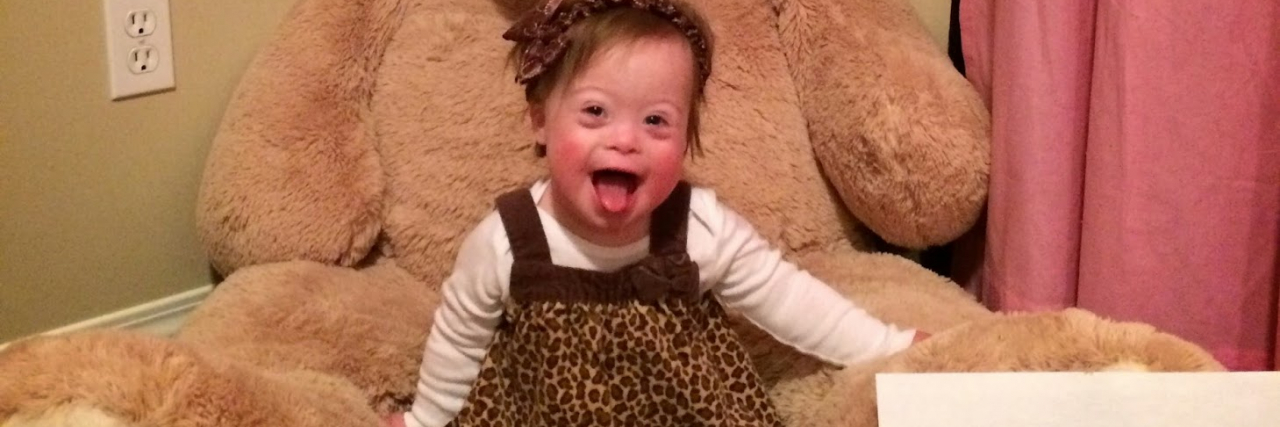Recently, a few friends have asked me how they should explain Down syndrome to their children. This is only my opinion; it may not work for everybody. But I’m always open to discussion and love when others come up and talk to us about my daughter, Adele.
When I explain Down syndrome to younger children, I try to keep it fairly simple.
Down syndrome is not a disease. You cannot catch it. It’s a chromosomal condition.
We have 46 chromosomes. They make up who we are as people. Mommy and Daddy both give us chromosomes; we get 23 from Mom and 23 from Dad. These chromosomes decide how we develop and grow, how we act, if we will look like Mom or Dad. When talking to your child about Down syndrome, some won’t understand your explanation on chromosomes, and that’s OK; it’s not the most important part about Down syndrome.
Adele has 47 chromosomes. This one extra chromosome gives her some extra special gifts. Her eyes are almond shaped, her nose bridge is flatter, her ears are smaller and lower-set, her mouth is shaped differently, her tongue is a bit bigger, she has a smaller mouth and her palette is shaped differently, which affects her speech. It might be harder to understand her, not because she doesn’t know how to talk, but because she lacks some muscle strength and the inside of her mouth is shaped differently. She will do all of the same things you do, but it’s going to take her a little longer.
Because of her extra chromosome, she’s a bit floppy like a rag doll, so crawling and standing are a little more difficult, but she’ll get there. She needs to work on getting stronger; we do this with the help of some great people. Adele does some special exercises that help with strength and speech. When you go skiing or play hard or have a big, long game of hockey or soccer, sometimes your muscles feel a bit weak and you feel kind of floppy; this is how it is for Adele every day. She just needs some time.
She will love the same music as you and will like sports and gymnastics, just like you. She has feelings, just like you, and she will love playing with her friends and laughing at silly jokes. Having the extra chromosome doesn’t make her any less of a person; she’s just like you. She just has to work a little bit harder at some things. Some school subjects might be a bit more difficult for her to catch on to, and some will be a little easier. Maybe math will be harder for her to understand because the numbers might be confusing, but she may write great stories in Language Arts class.
It’s OK to look; I do too, and it’s OK to ask questions. I like it when you come up to me and ask questions about Adele. It’s important to ask when you don’t understand something; we do this in school all of the time. When you’re confused or you need more clarification, you ask your teacher for help. This is how I feel when it comes to Adele — just ask me. I will answer your questions and hopefully help you to understand why Adele has some extra special gifts and how they affect her day-to-day life. Always remember that different is beautiful. We were all made to not look like each other. We are all unique. If we all looked identical or if we all liked the same subjects and played the same sports, life would be boring.
Children and adults with Down syndrome are just like you and me. We are all beautiful, we all have our own gifts, talents, weaknesses and strengths.
Be kind to each other. Be a good friend. Include others.
This post originally appeared on A Perfect Extra Chromosome.

